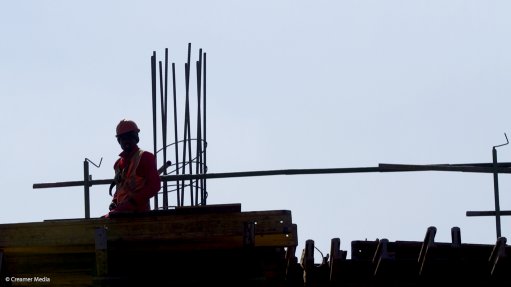
Despite tough market conditions compounded by increasingly delayed payments and reductions in advance pay from clients in the construction industry, JSE-listed group Stefanutti Stocks saw a 17% rise in operating profit from R335-million in the 2015 financial year to R392-million for the year ended February 29.
After excluding the profit on sale of the investment property and fair value adjustment, operating profit increased by 10% to R37-million, with the corresponding margin improving year-on-year from 3.2% to 3.8%.
The group also saw an 11% rise in earnings before interest, taxes, depreciation and amortisation from R497-million in 2015 to R551-million in the year under review.
Still, revenue dropped by 9%, falling R900-million in the year under review from R10.6-billion in 2015 to R9.7-billion, which the group attributed to reduced revenue from the building business.
EPS from continuing operations were 149.3c in the period under review, compared with 150.4 in the previous year, while diluted HEPS from continuing operations were 128.4c in the period under review, compared with 136.5c in the year under review, dropping 1% and 6% respectively.
Despite these headwinds, CEO Willie Meyburgh said on Thursday that the company had managed to maintain its order book in most divisions, on the back of small-to-medium sized projects.
Stefanutti’s order book currently stood at R12.7-billion, with 38% comprising work from outside of South Africa, representing R4.8-billion for the 12 months ended February 29.
Meyburgh said the group felt that there was potential growth in certain sectors of the economy that provided opportunities for roads and earthworks, building, oil and gas and electrical and instrumentation operations.
“In other sectors, the group remains well positioned to take advantage of the medium-sized projects coming to the local marketplace,” he said.
He noted, however, that the group saw a material increase in interest-bearing borrowings to R636-million compared with last year’s R449-million, with an associated increase in the interest charge for the year.
This, together with the interest on the third and fourth instalment of the Competition Commission penalty, had an impact on the group’s finance costs for the year.
When compared with the prior year, the combined impact of the increase in the finance costs and a decline in profits of equity accounted investees, from R33-million to R19-million, resulted in a similar after-tax profit from continuing operations of R265-million.
Meanwhile, during the year under review, Stefanutti, repurchased about 1-million of its own shares through a subsidiary, at an average price of R3.47 a share. It also disposed of its 49% investment in Zener Steward Electromechanical, owing to deteriorating market conditions in the Middle East.
Post year-end, the group acquired an effective 74% stake in two empowered construction businesses active in the South African petrochemical market. These included KLB Mkhize Electrical Projects, an electrical and instrumentation company, for a purchase consideration of R7-million, and Celik Engineering, a mechanical and structural piping engineering company for a purchase consideration of R2-million.
Meyburgh concluded that, given the economic circumstance, he was satisfied with the overall performance of the group.